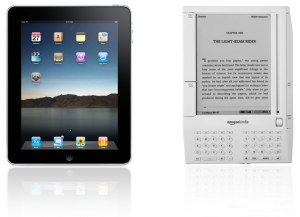A while ago I posted some drawings of MR2s that I made once. I decided to see if I could add color to them and make them look a little better. I was going to try using gradient meshes to accomplish this, but got frustrated, and instead used Gaussian blurs to accomplish shading and highlights. It is by no means “photo-realistic,” but I think it still turned out interesting. Let me know what you think!
The 5 Stages of Grief – A Tale of a Broken iPhone
If you had asked me what I thought of cell phones a few years ago, I would have probably said that I hated them, and they are a waste of time and money. I have since gotten an iPhone and have loved it very much. I have become accustomed to certain apps that I would now find difficult to live without one. Please read on for the full story…
On Friday, it was my wife’s birthday. Her iPhone has had a non-functioning home button for month’s now (no longer under warranty), and I thought it was time fix it for her. Money is too tight to go out an buy a new one, but I have taken apart an iPhone before, and figured that would be just the thing as an added birthday present. I also thought I would replace her glass while I was at it, seeing as she got a crack when she dropped the phone once.
Once I got it all apart, I started to take the glass off of the LCD when suddenly I heard a *snap*. My worst fears were confirmed as I looked at the screen.
Knowing that it would be terrible to tell my sweetheart that I broke her phone on her birthday, I proceeded to take mine apart in an effort to give her my screen, and make restitution. This was done, and she now has a fully functioning iPhone again. I however now have nothing.
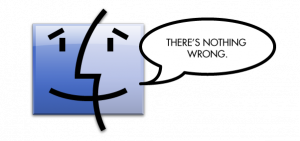 First, I had a bout of Denial. I thought to myself, oh, the screen isn’t that badly damaged, I can live with it.
First, I had a bout of Denial. I thought to myself, oh, the screen isn’t that badly damaged, I can live with it.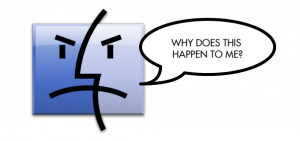 Then hit Anger when I realized that the device wouldn’t display anything on the screen, and blamed my fumble-fingers for their blunder.
Then hit Anger when I realized that the device wouldn’t display anything on the screen, and blamed my fumble-fingers for their blunder.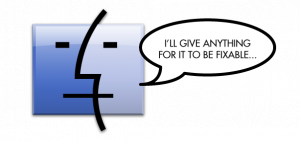 Bargaining occurred when I thought I could just not spend as much money on groceries this month to afford a new screen.
Bargaining occurred when I thought I could just not spend as much money on groceries this month to afford a new screen.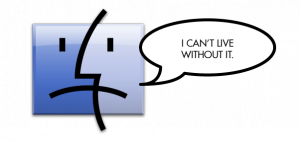 Depression hit when I realized that I wouldn’t be able to fix it. Living without Email and other useful apps messed up my routine. It was just annoying.
Depression hit when I realized that I wouldn’t be able to fix it. Living without Email and other useful apps messed up my routine. It was just annoying.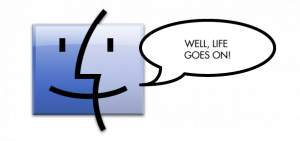 Finally, Acceptance that it was too late, and that life is too short to worry about electric gizmos.
Finally, Acceptance that it was too late, and that life is too short to worry about electric gizmos.Now I am getting along fine just waiting for an opportunity to get another one some day.
UPDATE: My ever generous boss sold me his old iPhone. Once again I am reunited with this device that saves me so much time and performs so many useful functions. Yay!
iPad vs Kindle
OK, I realize that these are only comparable on one plane, and that is reading books. Aside from that, these are two completely different and independent products. But I have thought about it, used both, and have come to the decision that even though the iPad has so many amazing features, and is such a cool and fun product, perhaps in this case less is more for me. Let me explain.
With the iPad, you can surf the web, write emails, look at photos, watch movies and live TV, listen to music, play games, read the news, read books, and the list goes on.
With the kindle, you can read books, and read magazines.
If I purchased either device, I would want it for mostly the reading experience. I spend enough time at work and on my desktop and laptop at home surfing the internet and staying up with technology and news. I feel the desire to do more recreational reading rather than recreational surfing/playing/watching. And when it comes to reading, I truly would prefer to read and be distanced from the noise of the internet.
As far as reading goes, the Kindle’s E-Ink display is amazing. It looks great, and is not so contrasty that it hurts my eyes. It looks good in broad daylight and in general just is a neat technology. The iPad has a great LED display that looks good in many lighting conditions, however the bright display has been shown to perhaps cause insomnia. This happens because our bodies naturally release melatonin as the sun sets to help us get into sleep mode. Light however has been shown to keep that from happening which can mess up the body’s natural sleep rhythm.
Another thing I have noticed is that glossy displays, such as the newest iMacs, and iPads give me headaches. They are harder for my eyes to focus on, and produce glare that can be quite distracting and annoying. Luckily, the iPad is so small and light that it is easy to adjust it into a location where there is little to no glare. This still doesn’t change the fact that the display is hard on my eyes (and my eyes aren’t getting any younger). The Kindle’s E-ink display is so easy on my eyes and never has glare issues which is a real plus in my book. (Did you see the pun?)
In general, I suppose it also goes back to my philosophy of specialized devices. It is better to have multiple gadgets that are the best at each thing rather than one device that is kind of good at many things. The Kindle isn’t as flashy as the iPad (did you see the other pun?) but provides what I think is a better reading experience, and at this point in my life, that’s what I care most about.

